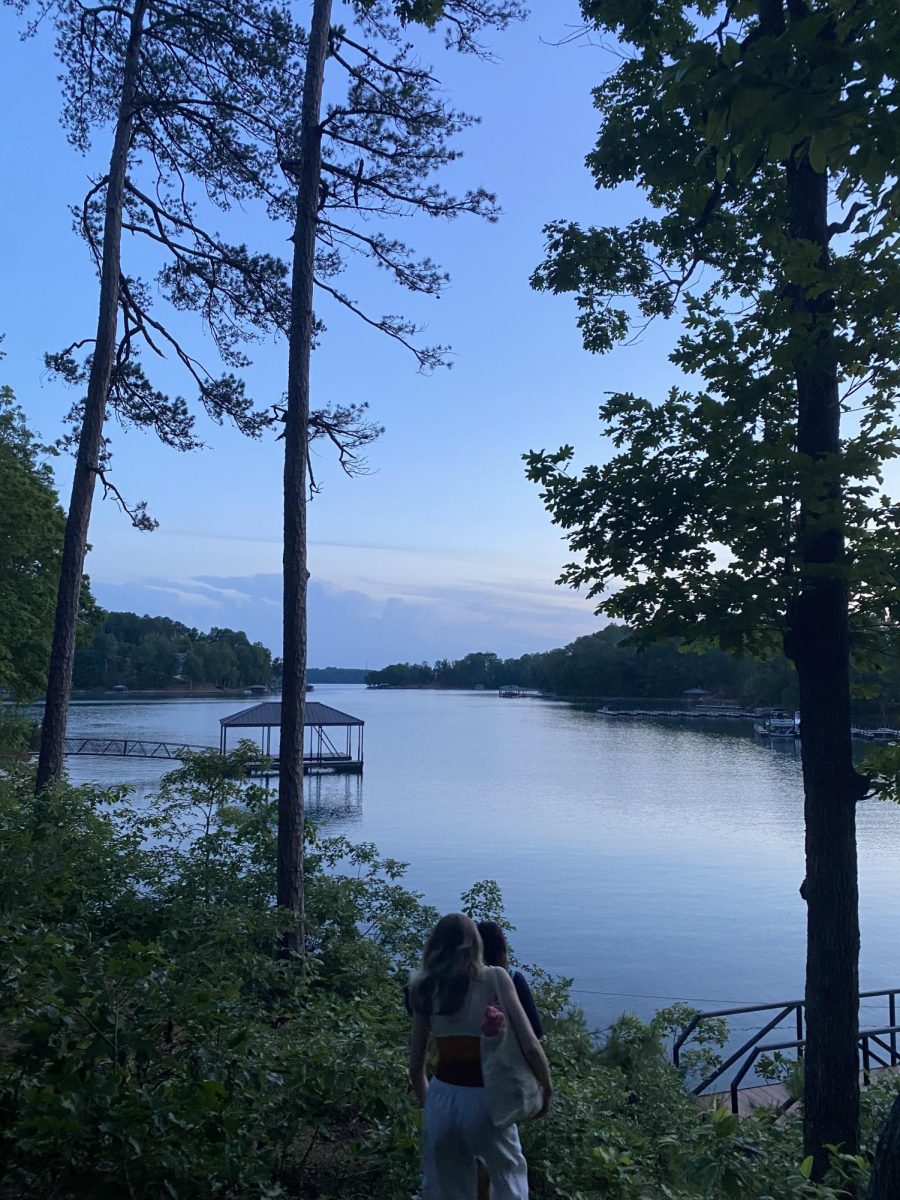A week after Clemson University announced a “complete reevaluation” of the proposed site for Duke Energy’s new CHP (combined heat and power) plant, residents and local representatives are still making their voices heard.
Nearly 60 residents and local representatives gathered on the afternoon of April 14 at 100 Vineyard Rd. to show their opposition to Duke Energy’s plans to build a CHP plant on the eastern edge of Clemson University’s property.
Representatives from Upstate Forever, a land conservation and advocacy group based out of Greenville, flew helium balloons to show how tall the 70-foot smokestacks would be, helping the community understand what they would look like.
“I wanted to understand the site, and I couldn’t understand it from Google Earth [satellite images],” said Shelley Robbins, Upstate Forever’s energy and state policy manager.
Robbins added that she has walked the site and that she “can see the church [Clemson Presbyterian] from the potential site” as well as local residences.
“It confirms that this is not the right location for this plant,” she said.
Robbins said that Upstate Forever has requested to be included in the reevaluation process.
“If additional sites are proposed, we [want to] understand all of the issues associated with them … [so we] can make recommendations rather than being reactive,” Robbins said. “We’d rather be a part of the solution.”
Tanya Hyatt, who lives at 100 Vineyard Rd. with her husband, Peter, and their four children, said that she and local residents are concerned about the university’s reevaluation of the plant’s site.
“We don’t actually know if reevaluation means relocation or if reevaluation means they’re going to come back to us and want to put it in the same exact location,” she said.
In a statement released last week, the university said that “the site review will include careful examination of the technical requirements to build the facility, proximity to existing Duke Energy electrical transmission infrastructure, the potential future land use needs of the university and impact on the community, among other considerations.”
Hyatt added that the university said it would keep residents informed about the reevaluation, but they haven’t heard anything other than that it won’t delay the plant’s completion. The plant is expected to begin operations in spring 2019.
“[The university] said they’re going to be open, honest and transparent moving forward, but they have not provided us with any open, honest and transparent information,” she said.
City council has also raised new concerns about the plant in its filing made with the S.C. Public Service Commission (PSC) last week.
In that filing, City Attorney Mary McCormac noted that Duke Energy plans to discharge water from the facility into the city of Clemson’s sewer system, adding that Duke Energy would like 100,000 gallons of wastewater treatment capacity.
The city “historically has required annexation before providing sewer service outside of the city,” McCormac said, adding that after the city council’s vote to oppose the project, “it appears unlikely that City Council would approve a request for city sewer service at the proposed facility.”
The filing also questioned if Duke Energy would “use the best available pollution controls for the gas-fired power plant, particularly with respect to [nitrous oxide] emissions” and lists additional concerns about “diminution of property enjoyment and property values”; methane emissions from gas fracking and from transporting natural gas; damage to wetlands; and noise and light pollution.
Duke Energy filed its application with the PSC on Feb. 21 to have its steam contract with the university approved, requesting that it be approved without notice or a hearing.
On April 11, the commission suspended the April 17 intervention date at Duke Energy’s request.
It is unknown what the new intervention date will be.
Categories:
Clemson residents, representatives continue to oppose Duke Energy plan
Katie McCarthy, News Editor
April 17, 2017
0
Donate to The Tiger
Your donation will support the student journalists of Clemson University. Your contribution will allow us to purchase equipment and cover our annual website hosting costs.
More to Discover







